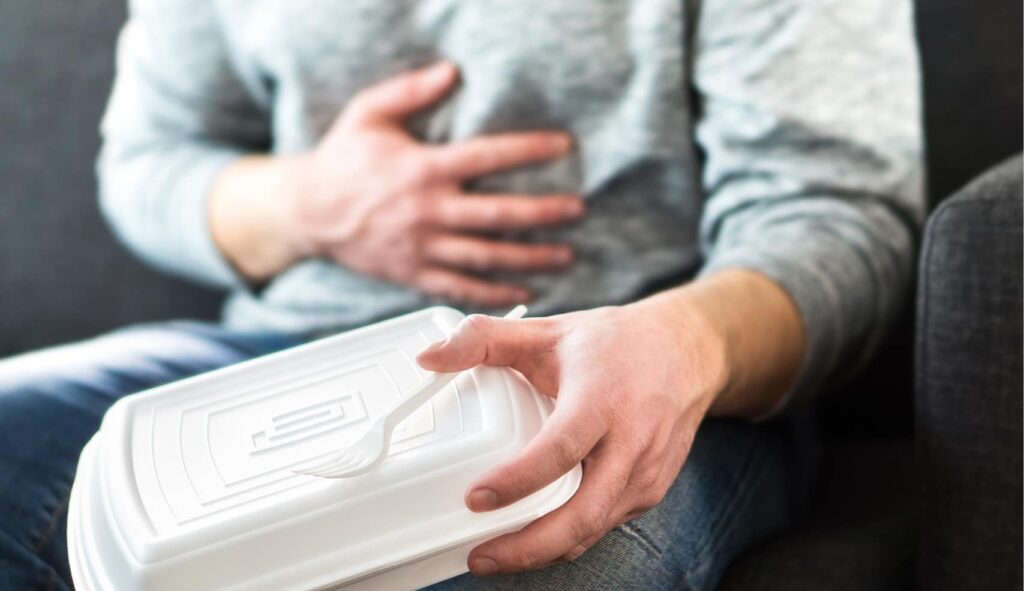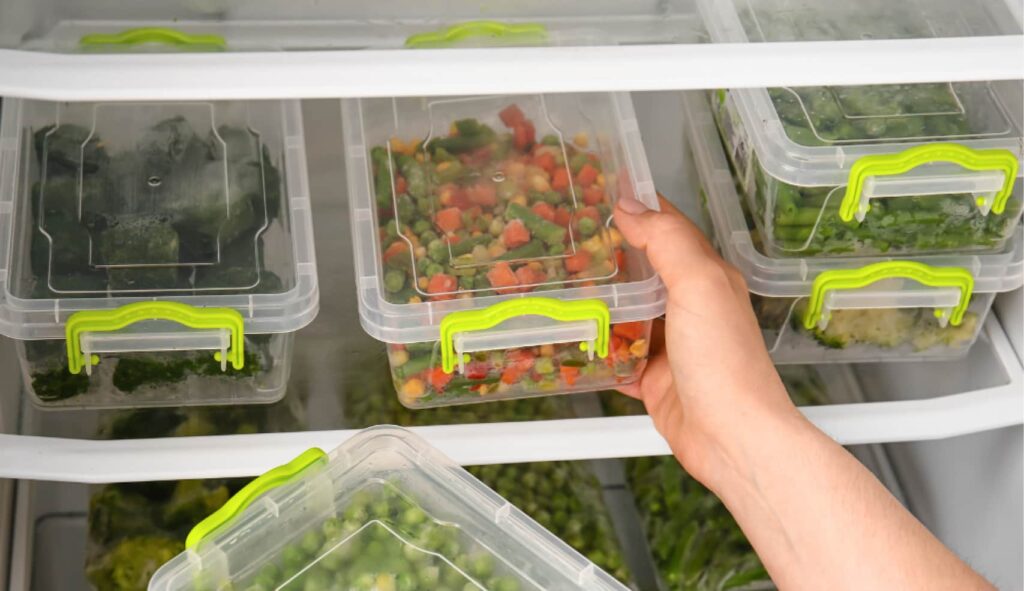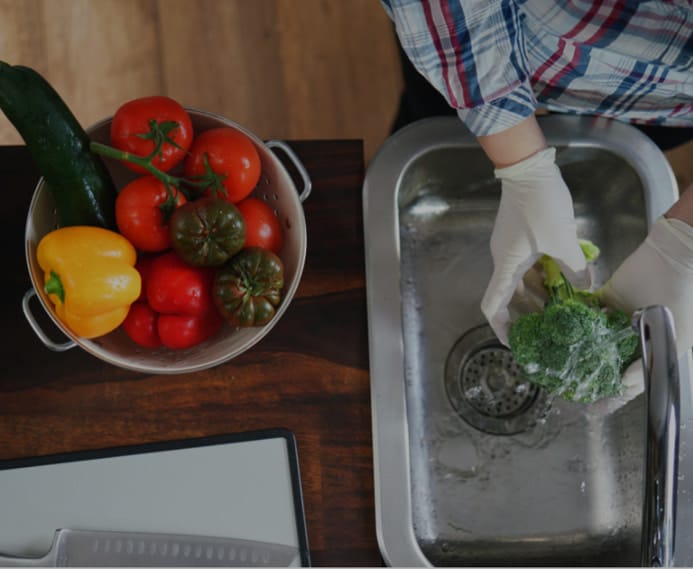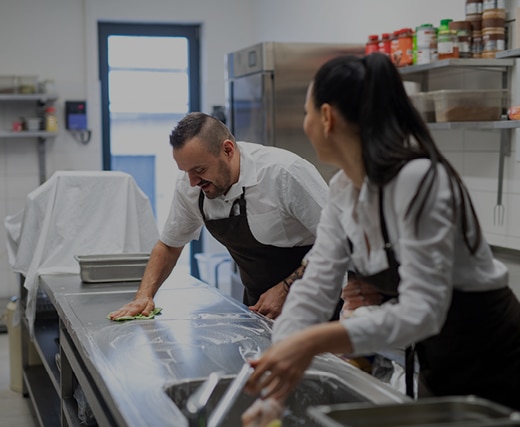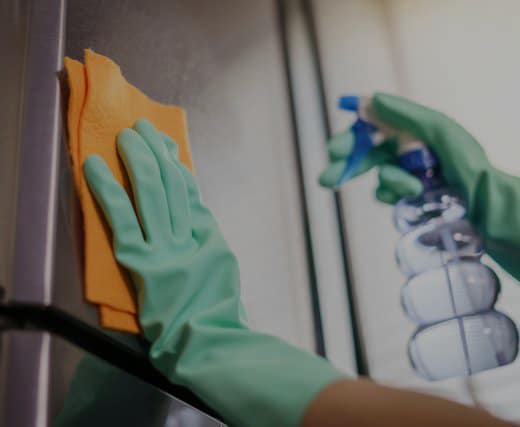Keeping ready-to-eat food separate from raw food
Raw meat, poultry and seafood can contain harmful bacteria, such as E. coli, campylobacter, and salmonella, all of which can cause food poisoning. If they come into contact with cooked foods, the bacteria can transfer, making it unsafe to eat, even though they are cooked.
As a rule, the more hazardous a food is, the lower it should be stored in the fridge. Keep ready-to-eat and cooked food above any raw foods in the fridge. Place raw poultry, meat, and seafood on the bottom shelf in either sealed plastic bags or in food-grade, sealed containers in an uncrowded manner. This prevents juices from dripping onto other foods.
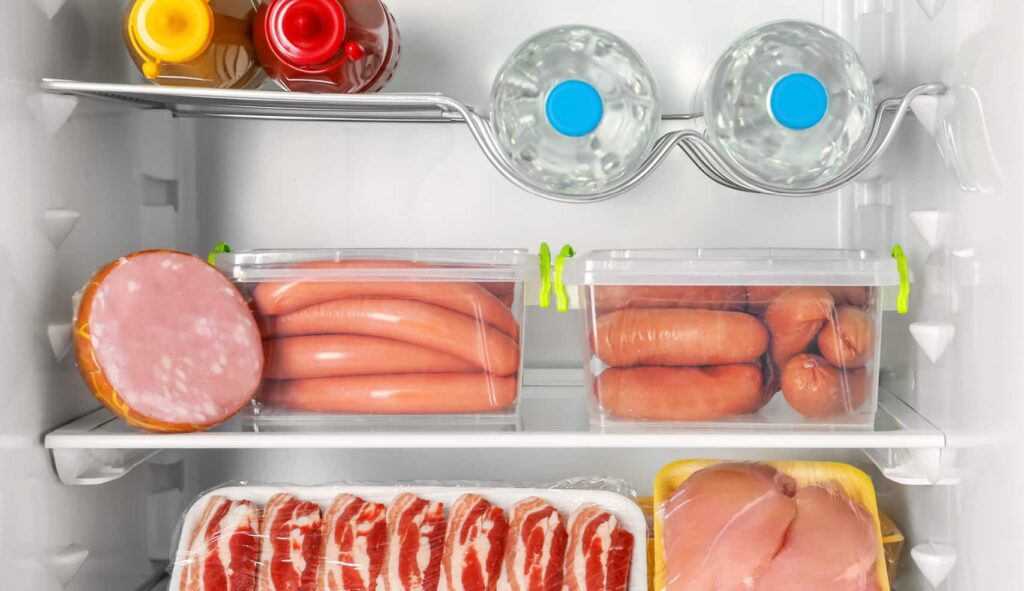
Thawing frozen food safely
Bacteria can grow in frozen food during the thawing process so it must be kept out of the temperature danger zone. You can place frozen foods in a pan on the bottom shelf of the fridge so juices don’t drip onto other foods or spill onto the fridge’s surfaces.
Avoid refreezing food that has been frozen then thawed as refreezing does not kill the bacteria which can remain in the food when it is thawed again.
Maintaining a clean, hygienic fridge
Keeping your fridges clean is important to prevent odours and the growth of mould. Establish a regular maintenance schedule so that the fridge is inspected, cleaned, and reorganised frequently.
Removing all the food from the fridge provides an opportunity to identify exactly what’s in there and rearrange according to freshness and expiry. Throw out any expired products and make sure the food is not out of the fridge for longer than is necessary, to ensure temperature consistency.
When cleaning the fridge internally, remove all food products prior to prevent chemical contamination. You can learn more about commercial fridge maintenance here.
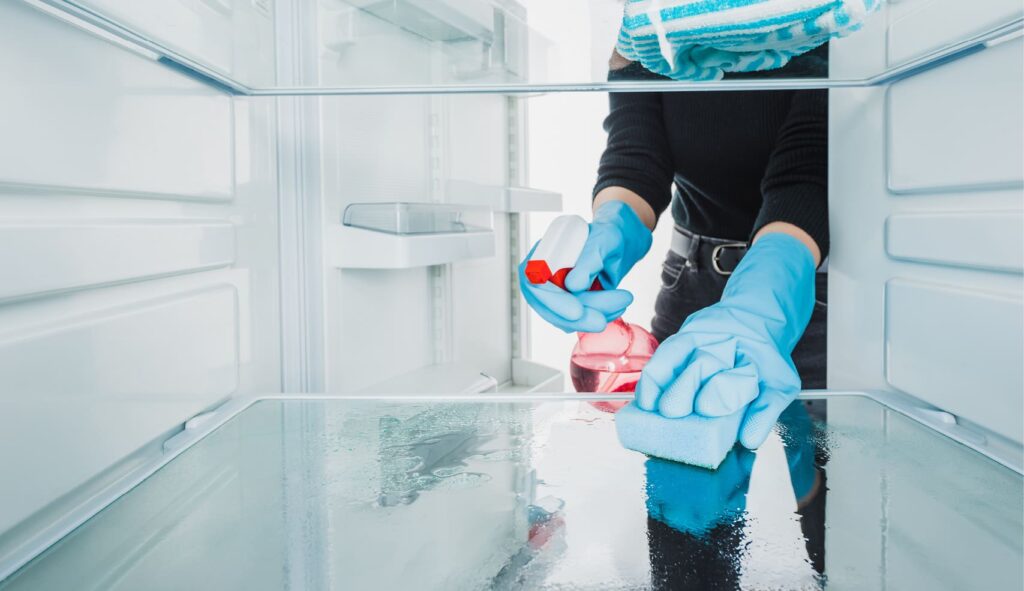
The importance of good personal hygiene
Washing our hands thoroughly and effectively is key to preventing contamination. When handling food, clean hands are imperative so that the risk of cross-contamination is minimised.
Wash hands for at least 20 seconds when handling and storing food, particularly raw food. Hands must also be washed after using the bathroom, coughing, or sneezing, using the phone, handling money, and touching one’s hair, among other instances. All staff should be educated on the importance of appropriate personal hygiene.
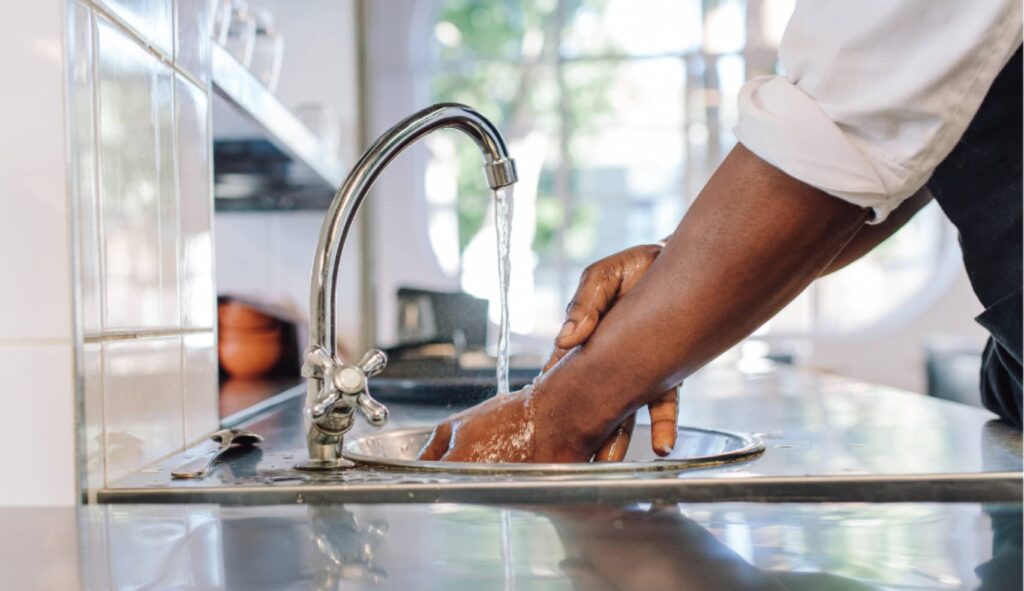
Protecting your bottom line against cross-contamination
In conclusion, minimizing cross-contamination in commercial fridges is paramount for food businesses to ensure safety and uphold their reputation. Cross-contamination not only leads to food wastage and financial losses but also poses serious health risks to customers, potentially resulting in legal issues and reputational damage. By adhering to proper food storage practices, maintaining hygiene, and educating staff on personal hygiene, businesses can protect their customers, their bottom line, and their brand integrity.
All of Bromic’s fridges have been tested to Australian standards so you can focus on doing what you do best. Explore our range of food-safe commercial fridges today.
Follow us on social media to keep up to date with the latest products and industry tips.
Facebook
Instagram
Linkedin
